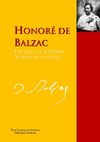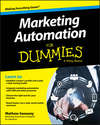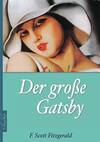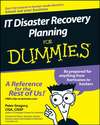Kitabı oku: «The Political History of England – Vol XI», sayfa 14
CHAPTER VIII.
THE FIRST YEARS OF PEACE
When Parliament met on February 1, 1816, after a recess of unusual length, Castlereagh was received with loud acclamations from all parts of the house as the chief actor in the pacification of Europe. There was, of course, a full debate upon the treaties, but the opposition dwelt less upon the arbitrary partition of Europe than upon their alleged tendency to guarantee sovereigns against the assertion of popular rights and upon the manifest intention of the government to "raise the country into a military power". From this moment dates the whig and radical watchword of "Peace, Retrenchment, and Reform". The nation was, in fact, entering upon a period of unprecedented depression and discontent, which lasted through the last four years of George III.'s reign. At the close of 1815, however, the whole horizon was apparently bright. Great Britain had saved Europe by her example, and, however small her army in comparison with those of continental states, she stood foremost among the powers which had crushed the rule of Napoleon. Her national debt, it is true, had reached the prodigious total of £861,039,049, and the interest on it amounted £32,645,618, but the expansion of our national resources had kept pace with it. In spite of the continental system, the orders in council, and the American war, the imports and exports had enormously increased, chiefly by means of an organised contraband traffic; the carrying trade of the world had passed into the hands of British shipowners; British manufactures were largely fostered by warlike expenditure at home and the suspension of many industries abroad; while population, stimulated by a vicious poor law, was rapidly on the increase. In this last element, then considered as a sure sign of prosperity, really consisted one of the chief national dangers.
So long as the war lasted, low as the rate of wages might be, there was generally employment enough in the fields or in the factories for nearly all the hands willing to labour. When the inflated war prices came to an end, and wheat fell below 80s. or even 70s. a quarter, until it reached 52s. 6d. early in 1816, labourers were turned off and wages cut down still further; bread was not proportionately cheapened, and agrarian outrages sprang up. The continent, impoverished by the war, no longer required British goods for military purposes, and, as its own domestic industries revived, ceased to absorb British products, flung in profusion on its markets. Hence came a reduction of 16 per cent. in the export trade, and of nearly 20 per cent. in the import trade, which resulted in bankruptcies and the dismissal of workpeople. If we add to these causes of distress, the influence of over-speculation, the accession of disbanded soldiers to the ranks of the unemployed, and the substitution of the factory system with machinery for domestic manufactures with hand labour, we can partly understand why Great Britain, never harried by invading armies, should have suffered more than France itself from popular misery and disaffection for several years after the restoration of peace.
VANSITTART'S FINANCE.
The history of these years is mainly a history of social unrest, and attempts to cure social evils by legislation or coercion. Liverpool and his colleagues, with the possible exception of Eldon, were not bigoted tories, and it is sometimes forgotten that among them, together with Sidmouth, Castlereagh, and Vansittart, were Canning, Palmerston, and Peel. One of the first parliamentary struggles was on the proposal of the government to reduce the income tax from 10 to 5 per cent., and to apply this half of it, producing about £7,500,000, towards the expense of maintaining an army of 150,000 men. Since the income tax has become a favourite of democratic economists, as pressing specially upon the rich, we may be surprised to find that its total repeal was successfully advocated by Henry Brougham, the leading democrat of that day – a man whose noble services to progress and to humanity in the earlier part of his career have been obscured by the inordinate vanity and unprincipled egotism which he displayed in the later phases of his long public life. He had entered parliament in 1810, and rapidly became the most active of the opposition speakers. He now employed without scruple all the arts of agitation, petition-framing, and parliamentary obstruction to achieve his object, and succeeded, by the aid of bankers and country-gentlemen, in defeating the government by a majority of thirty-seven. This vote might be justified, more or less, on the principle laid down by Pitt, that the income tax should be held in reserve as a war tax only, or on the ground that it was equally wasteful and mischievous to keep up so large a peace-establishment, especially if it might be used to bolster up despotism abroad. It was also unfortunate that Castlereagh, ignoring the heroic efforts made by the people of England for more than twenty years, should have deprecated "an ignorant impatience to be relieved from the pressure of taxation". Still, it is remarkable that friends of the people and the ultra-liberal corporation of London, as it then was, should have concentrated their indignant protests against the financial policy of the government, not on the corn laws, or any other indirect tax, but on the income tax.
Public confidence in the economic wisdom of the ministers was further weakened by the gratuitous abandonment of the malt tax, apparently in a fit of petulance, on the ground, explicitly stated, that, if another war tax must be raised, two or three millions more or less would make little difference. By a temporary suspension of the sinking fund, a deficit might be converted into a surplus; Vansittart, however, neglected to take advantage of this simple expedient, and raised £11,500,000 by loan. His waning reputation was almost shattered by this absurd proceeding. Finally, the excessive and irregular expenditure upon the civil list provoked a searching inquiry into its abuses, prefaced by a scathing attack from Brougham upon the character of the prince regent. His character was, in fact, indefensible, and had justly forfeited the respect of the nation. He was a debauchee and gambler, a disobedient son, a cruel husband, a heartless father, an ungrateful and treacherous friend, and a burden to the ministries which had to act in his name and palliate his misdoings. That of Liverpool carried a measure for the better regulation of the civil list, upon which, swollen as it was by the wrongful appropriation of other public funds, many official salaries had been charged hitherto. For these parliament now made a separate provision. The house of commons, which properly grudged the prince regent the means of reckless luxury and self-indulgence, was unanimous in voting £60,000 for outfit and £60,000 a year to the Princess Charlotte on her marriage, on May 2, to Prince Leopold of Saxe-Coburg, looking forward to a reign under which virtue and a sense of public duty would again be the attributes of royalty. In this session, too, it conferred a boon upon Ireland, which earned little gratitude, by the consolidation of the British and Irish exchequers. Ireland was virtually insolvent before this measure was passed. With the union of the exchequers the union of the countries was completed. The administration, discredited by its financial policy, was strengthened in June by the acquisition of Canning, who succeeded Buckinghamshire as president of the board of control. In September, 1814, Wellesley Pole, a brother of the Marquis Wellesley and the Duke of Wellington, had been admitted to the cabinet as master of the mint, so that with Castlereagh, Vansittart, and Bragge-Bathurst, there were now five members of the cabinet in the lower house.
INDUSTRIAL RIOTS.
The disturbances which broke out again and again during the years 1816-19 were partly the outcome of sheer destitution among the working classes, and partly of a growing demand for reform, whether constitutional or revolutionary. The statesmen of the regency must not be too severely judged if they often confounded these causes of seditious movements, and failed to distinguish between the moderate and violent sections of reformers. Those who remembered the bloodthirsty orgies of the French revolution, ushered in by quixotic visions of liberty, equality, and fraternity, may perhaps be excused for distrusting the moderate professions of demagogues who deliberately inflamed the passions of ignorant mobs. Moreover, the whigs and moderate reformers, who privately condemned the excesses of their violent followers, made light of these in their public utterances, and reserved all their censures for the repressive policy of the government. Bread riots had begun before the harvest, which proved a total failure. The price of wheat, which was as low as 52s. 6d. a quarter in January, 1816, rose to 103s. 1d. in January, 1817, and to 111s. 6d. in June, 1817. And when rickburning set in as a consequence of agricultural depression, tumultuary processions as a consequence of enforced idleness in the coal districts, and a revival of Luddism as a consequence of stagnation in the various textile industries, itself due to a glut of British goods on the continent, the reform party, now raising its head, was held responsible by the government for a great part of these disorders.64 The writings of Cobbett, especially his Weekly Register, certainly had a wide influence in stirring up discontent against existing institutions, but it must be admitted that he condemned the use of physical force, and pointed to parliamentary reform as the legitimate cure for all social evils. Reform, however, in Cobbett's meaning included universal suffrage with annual parliaments, and the Hampden clubs, all over the country, agitated for the same objects in less guarded language. Still, looking back at these democratic agencies by the light of later experience, we can hardly adopt the opinion expressed by a secret committee of the house of commons that their avowed objects were "nothing short of a revolution".
It was on December 2, 1816, that the extreme section of reformers, now for the first time known as radicals, in alliance with a body of socialists called Spenceans, first came into open collision with the forces of the law. A meeting was announced to be held on that day in Spa Fields, Bermondsey, and was to be addressed by "Orator" Hunt, Major Cartwright, the two Watsons, and other demagogues. Hunt was a gentleman of Somerset, and had stood for Bristol in 1812. Though a prominent speaker, he in no sense directed the movement. Burdett and Cochrane, the orthodox leaders of London reformers, were not concerned in this demonstration, which, according to an informer who gave evidence, was to be the signal for an attack upon the Tower and other acts of atrocity. As it was, before Hunt chose to appear, the mob, headed by the younger Watson, broke into gunsmiths' shops, not without bloodshed, and marched through the Royal Exchange, but were courageously met by the lord mayor, with a few assistants, and very soon dispersed. The alarm produced in the whole nation by this riotous fiasco was quite out of proportion to its real importance, and was reawakened by an insult offered to the prince regent on his return from opening parliament on January 28, 1817. Even Canning, a life-long opponent of reform, did not scruple to magnify these and similar evidences of popular restlessness into proofs of a deep-laid plot against the constitution, and committees of both houses urged the necessity of drastic measures to put down a conspiracy against public order and private property. These measures took the form of bills for the suppression of seditious meetings, and for the suspension until July 1 of the habeas corpus act, which had been uninterruptedly in force since its suspension by Pitt had expired in 1801. This last bill was passed on March 3, and, before the other became law, the so-called march of the Blanketeers took place at Manchester. The march was the ridiculous sequel of a very large meeting got up for the purpose of carrying a petition to London, and presenting it to the prince regent in person. The meeting was dispersed by the soldiers and police, after the riot act had been read, and a straggling crowd of some three hundred who began their pilgrimage, carrying blankets or overcoats, melted away by degrees before they had got far southward.
SIDMOUTH'S UNPOPULARITY.
A far more serious outbreak at Manchester seems to have been clumsily planned soon afterwards, but it ended in nothing, and the enemies of the government freely attributed this and other projects of mob violence to the instigation of an agent-provocateur, well known as "Oliver the Spy". This man was also credited with the authorship of "the Derbyshire insurrection," for which three men were executed and many others transported. Here there can be no doubt that a formidable gang, armed with pikes, terrorised a large district, pressing operatives to join them in overt defiance of the law, and killing one who held back. Being confronted by a Nottinghamshire magistrate named Rolleston, with a small body of soldiers, they fled across the fields, and the bubble of rebellion burst at a touch. Whether they were legally guilty of high treason, for which they were unwisely tried, may perhaps be doubted, but it would certainly be no palliation of their crime if it could be shown, as it never was shown, that Oliver had led them to rely on a jacobin revolution in London. What does appear very clearly is that Sidmouth was greatly alarmed by the reports of his agents on the disturbed state of the country, but that he was highly conscientious in his instructions and in the use of his own powers. The great majority of those imprisoned for political offences at this time were liberated or acquitted, but the suspension of the habeas corpus act was renewed at the beginning of July.
Moreover, a circular was addressed by Sidmouth to the lords-lieutenant of counties, for the information of the magistrates, intimating that, in the opinion of the law officers, persons charged on oath with seditious libel might be apprehended and held to bail. No act of Sidmouth called forth such an outburst of reprobation as this; yet it is not self-evident that instigations to outrage, being criminal offences, should be treated by magistrates differently from other offences for which bail may be required, with the alternative of imprisonment. On the other hand, it is hardly becoming for a home secretary to interpret the law, and, since the forensic triumphs of Erskine, it had been declared by an act of parliament that in cases of libel, as distinct from all other criminal trials, both the law and the fact were within the province of the jury. At all events, William Cobbett, feeling himself to be at the mercy of informers and the crown, took refuge in America in December, 1817. Hone, an antiquarian bookseller, was thrice prosecuted for blasphemous libels, in which the ministers had been held up to contempt. All these ill-judged, if not vindictive, prosecutions ended in signal failure. Ellenborough, the chief justice, before whom the two last trials were held, strained his judicial authority to procure a conviction of Hone, but the prisoner, with a spirit worthy of a martyr, defied the intimidation of the court, and thrice carried the sympathies of the jury with him. His triple acquittal led to Ellenborough's resignation, and perceptibly shook the prestige of the government.
In the year 1818 there was a temporary improvement in the economic condition of the country. The depression of the preceding year was followed in this year by a rapid increase of revenue. The importance the ministry attached to finance was emphasised by the admission to the cabinet in January of Frederick John Robinson, afterwards prime minister as Lord Goderich, who had been appointed president of the board of trade and treasurer of the navy. The chancellor of the exchequer and the master of the mint were already members of the cabinet. The suspension of the habeas corpus act having expired, the reform agitation revived, but assumed a less dangerous character, and no serious outbreak occurred. A bill of indemnity was passed to cover any excesses of jurisdiction in arresting suspected persons or in suppressing tumultuous assemblies. A parliamentary inquiry showed both that the disorders of the previous year had been exaggerated, and that, after all, the extraordinary powers of the home office had been used with moderation. Nevertheless, the early part of the session was largely occupied by party debates on these questions, the employment of spies, and apprehensions for libel. Parliament was dissolved in June, and the general election which followed resulted in a gain of several seats to the opposition.65 The ministry was strengthened in January, 1819, by the appointment of Wellington to be master-general of the ordnance, in succession to Mulgrave, who remained in the cabinet without office.
THE "MANCHESTER MASSACRE".
Before the end of the year 1818, a strike of Manchester cotton-spinners was attended by the usual incidents of brutal violence towards workmen who refused to join in it, but a few shots from the soldiers, one of which killed a rioter, proved effectual in quelling lawlessness. Manchester, however, remained the centre of agitation, and during the summer of 1819 a series of reform meetings held in other great towns culminated in a monster meeting originally convened for August 9, but postponed until the 16th. The history of this meeting ending in the so-called "Manchester" or "Peterloo massacre," has been strongly coloured by party spirit and sympathy with the victims of reckless demagogy no less than of blundering officialism. It is certain that drilling had been going on for some time among the multitudes invited to attend the meeting of the 9th; that its avowed object was to choose a "legislatorial representative," as Birmingham had already done, and that, on its being declared illegal by the municipal authorities, who declined to summon it on their own initiative, its organisers deliberately resolved to hold it a week later, whether it were legal or not.
The contingents, which poured in by thousands from neighbouring towns, seem to have carried no arms but sticks, and to have conducted themselves peaceably when they arrived at St. Peter's Fields, where Orator Hunt, puffed up with silly vanity, was voted into the chair on a hustings. Unfortunately, instead of attempting to prevent the meeting, the county magistrates decided to let the great masses of people assemble, and then to arrest the leaders in the midst of them. They had at their disposal several companies of infantry, six troops of the 15th hussars, and a body of yeomanry, besides special constables. The chief constable, being ordered to arrest Hunt and his colleagues, declared that he could not do so without military aid, whereupon a small force of yeomanry advanced but soon became wedged up and enclosed by the densely packed crowd. One of the magistrates, fancying the yeomanry to be in imminent danger, of which there is no proof, called upon Colonel L'Estrange, who was in command of the soldiers, to rescue them and disperse the mob. Four troops of the hussars then made a dashing charge, supported by a few of the yeomanry; the people fled in wild confusion before them; some were cut down, more were trampled down, and an eye-witness describes "several mounds of human beings" as lying where they had fallen. Happily, the actual loss of life did not exceed five or six, but a much larger number was more or less wounded, the real havoc and bloodshed were inevitably exaggerated by rumour, and a bitter sense of resentment was implanted in the breasts of myriads, innocent of the slightest complicity with sedition, but impatient of oligarchical rule, and disgusted with so ruthless an interference with the right of public meeting.
It would have been wise if Sidmouth and his colleagues had recognised this widespread feeling, had seen that famine and despair were at the bottom of popular discontent, and had admitted error of judgment, at least, on the part of the Lancashire magistrates. On the contrary, they felt it so necessary to support civil and military authority, at all hazards, that they induced the prince regent to express unqualified approbation of the course taken, and afterwards defended it without reserve in parliament. Even Eldon expressed his opinion privately that it would be hard to justify it, unless the assembly amounted to an act of treason, as he regarded it; whereas Hunt and his associates were prosecuted (and convicted in the next year) not for treason, but only for a misdemeanour. At all events, the storm of indignation excited by this sad event, and not confined to the working classes, powerfully fomented the reform movement. Large meetings were held over all the manufacturing districts, and a requisition to summon a great Yorkshire meeting was signed by Fitzwilliam, the lord-lieutenant, who attended it in person. For these acts he was properly dismissed, but, in spite of inflammatory speeches, nearly all the meetings passed off quietly and without interference. Nevertheless, the government thought it necessary to hold an autumn session, and strengthen the hands of the executive by fresh measures of repression. These having been passed in December after strenuous opposition, were afterwards known as the six acts, and regarded as the climax of Sidmouth's despotic régime.
Two of the six acts, directed against the possession of arms and military training for unlawful purposes, cannot be considered oppressive under the circumstances then prevailing. Nor can exception be taken on the ground of principle to another for "preventing delay in the administration of justice in cases of misdemeanour," which, indeed, was amended, by Holland, with Eldon's consent, so as to benefit defendants in state prosecutions. Two were designed to curb still further the liberty of the press. One of these made the publication of seditious libels an offence punishable with banishment, and authorised the seizure of all unsold copies. When we consider the extreme virulence of seditious libels in those days, this act does not wear so monstrous an aspect as its radical opponents alleged, but happily it soon became a dead letter, and was repealed in 1830. The other, imposing a stamp-duty on small pamphlets, only placed them on the same footing with newspapers. The last of the new measures – "to prevent more effectually seditious meetings and assemblies" – was practically aimed against all large meetings, unless called by the highest authorities in counties and corporate towns, or, at least, five justices of the peace. It was, therefore, a grave encroachment on the right of public meeting, and the only excuse for it was that it was passed under the fear of a revolutionary movement, and limited in duration to a period of five years.
SOCIAL LEGISLATION.
Nor can it be denied that, as a whole, this restrictive code was successful. From a modern point of view it may appear less arbitrary than the suspension of the habeas corpus act for a whole year (1817-18), but it was assuredly tainted with a reactionary spirit, and was capable of being worked in a way inconsistent with civil liberty. That it was not so worked, on the whole, and caused less hardship than had been anticipated, was not so much the result of changes in the government itself, as of economic progress in the nation, aided by a healthier growth of public opinion. The violence which marked the early stages of the reform movement has been described as a safety-valve against anarchy; it was, in reality, the chief obstacle to a sound and comprehensive reform bill. While it lasted, the middle classes and liberals of moderate views were estranged from the cause; when it ceased, the demand for a new representative system became irresistible.
Whatever allowance may be made for the coercive policy of the government during the dark period of storm and stress which succeeded the great war, it is hard to find any excuse for its neglect of social legislation. Then, if ever, was a time when the work of Pitt's best days should have been resumed, when real popular grievances should have been redressed, and when the long arrears of progressive reform should have been gradually redeemed. Yet very little was done to better the lot of men, women, and children in Great Britain, and that little was chiefly initiated by individuals. In 1816, on the motion of a private member, an inquiry was commenced into the state of the metropolitan police, which disclosed most scandalous abuses, such as the habitual association of thieves and thief-takers, encouraged by the grants of blood-money which had been continued since the days of Jonathan Wild. In 1817 a committee sanctioned by the ministers recommended a measure for the gradual abolition of sinecures, which then figured prominently in the domestic charter of reform. Their recommendations were adopted, and a large number of sinecure offices were swept away. But inasmuch as sinecures had been largely given to persons who had held public offices of business, it was thought necessary to institute pensions to an amount not exceeding one-half of the reduction. In 1816 a private member, named Curwen, brought forward a fanciful scheme of his own for the amendment of the poor laws, which in effect anticipated modern projects of old age pensions. He obtained the appointment of a select committee, which reported in 1817, but their proposals were thoroughly inadequate, and no sensible improvement came of them.
It was also in 1816 that the cause of national education, the importance of which had been vainly urged by Whitbread, was taken up in earnest by Brougham. His motion for the appointment of a select committee was confined to the schools of the metropolis. It sat at intervals until 1818, when its powers were enlarged, and its labours somewhat diverted into a searching exposure of mismanagement in endowed charities. The one direct fruit of the committee was the creation of the charity commission, but in the opinion of Brougham himself it was of the highest value in opening the whole education question. The almost universal prevalence of distress in 1817, and the excessive burden thrown upon poor rates, induced parliament to authorise an expenditure of £750,000 in Great Britain and Ireland for the employment of the labouring poor on public works. A far sounder and more fruitful measure of relief owes its origin to the same year. It was now that the institution of savings banks, hitherto promoted only by single philanthropists, emerged from the experimental stage and claimed the attention of parliament. A bill for their regulation, introduced by Pitt's friend, George Rose, did not pass into an act; but the establishment of savings banks was now directly encouraged by the legislature, and there were thoughtful men who already dimly foresaw the manifold benefits of their future development.
THE CURRENCY QUESTION.
In the year 1819 was initiated a very important reform in the currency, which had long been delayed. When the bullion committee reported in 1810, Bank of England notes were at a discount of about 13½ per cent. There were several reasons why this should be the case. Continental trade was then compelled to pass through British ports, and a large supply of gold was needed to serve as the medium of this trade. There was also a steady drain of gold to the Spanish peninsula to meet war expenses, while troubles in South America diminished the annual output of the precious metals. In 1811 Bank of England notes were made legal tender, but no further action was then taken, and the depreciation continued until 1814. The magnificent harvest of 1813, together with other causes, brought about a sudden fall of prices, in consequence of which no less than 240 country banks stopped payment in the years 1814-16. The decrease and popular distrust of private banknotes produced an increased demand for Bank of England notes, which in 1817 had nearly risen in value to a par with gold. In 1819, when they were at a discount of only 4½ per cent., a committee was appointed by the house of commons to reconsider the policy of resuming cash payments, and Peel, young as he was, became its chairman. In this character he abandoned his preconceived views and induced the house to adopt those which had been advocated by Horner. It was not thought prudent to fix an earlier date than 1823 for the actual resumption of cash payments, but the directors of the Bank of England anticipated this date, and began to exchange notes for specie on May 1, 1821. The new standard was definitely one of gold. A considerable fall of prices ensued, and it is still a disputed question whether the return to a single standard was entirely beneficial.
But for what is called the public, the readers of newspapers and the frequenters of clubs or taverns, the rivalry of party leaders or the incidents of court life excite a much keener interest than painful efforts for the good of the humbler classes. During the closing years of George III.'s reign there were no party conflicts of special intensity. The whigs acquiesced in their self-imposed exclusion from office, and contented themselves with damaging criticism; the radicals had not yet acquired the confidence or respect of the electors. Liverpool remained prime minister; Castlereagh, foreign secretary; Sidmouth, home secretary; Vansittart, chancellor of the exchequer. Meanwhile there were startling vicissitudes in the fortunes of the royal family. The king, indeed, remained under the cloud of mental derangement which darkened the last ten years of his life, and the Princess of Wales, who had been the object of so much scandal, was now out of sight and residing abroad. The Princess Charlotte, however, the only daughter of the regent, had centred in herself the loyalty and hopes of the nation in a remarkable degree, and was credited, not unjustly, with private virtues and public sympathies contrasting strongly with the disposition of her father. Her marriage with Prince Leopold of Saxe-Coburg, who bore a high character, had been hailed with national enthusiasm, for it was known that, like Queen Victoria, she had been carefully trained and had disciplined herself, physically and morally, for the duties of a throne. It has been truly said that her death in childbirth, on November 6, was the great historical event of 1817. The prince regent, with his constitution weakened by dissipation, was not expected to survive her long, and so long as his wife lived there was no prospect of other legitimate issue, unless he could procure a divorce. There was no grandchild of George III. who could lawfully inherit the crown, and the apprehension of a collateral succession became more and more generally felt.66











